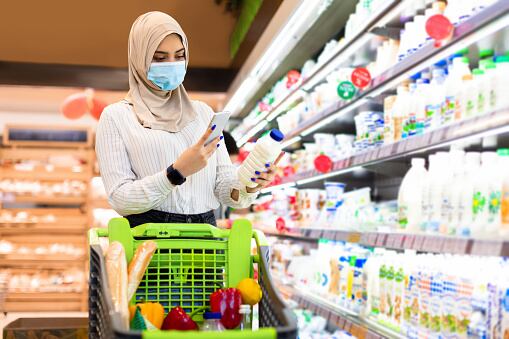The UAE is a desert country with limited natural agricultural resources and thus known to import at least 90% of its food, which has surfaced time and again as a source of concern for local authorities particularly in recent years when the COVID-19 pandemic caused food global supply chains to come to a near-standstill.
Authorities have now come to a decision to take more concrete steps to address this matter, starting with directives to local agencies to exhibit more support for locally-produced food products, in an effort to lead by example.
“The UAE produces several types of agricultural products in local farms such as salmon, quinoa and berries and [we are also looking to technology to expand these], such as to grow grains in closed-systems using recycled water,” UAE Ministry of Climate Change and Environment (MoCCAE) Minister Mariam Al Mheiri said in a formal statement.
“In November 2022, the UAE has made the decision and issued directives to various government agencies including hospitals and armed forces to prioritise the purchase of local produce to support local agri-tech efforts.
“The UAE supports open trade and wants to let trade continue, but [also want to encourage] a certain percentage of certain food items to be bought locally, especially where [we have control] over procurement and purchase decisions.”
The ministry also has its eye on improving local technology and equipment in order to boost food production quality and speed so as to improve food security, going so far as to engage the Dubai Customs authority on means to import these although specific targets have yet to be announced.
“A local Abu Dhabi accelerator programme has already invested over US$150mn to attract such firms to the UAE, which is crucial as we face issues such as water scarcity and a lack of aerable land,” Al Mheiri added.
“There is real urgency to prepare for a new climate reality [from a food supply perspective] as food and water insecurity is one of the aspects that climate change is triggering worsening situations for, [and] the Middle East is amongst the world’s regions most vulnerable to climate change.”
Corporate taxation incoming
Further to direct food security imperatives, the UAE is also implementing new corporate taxation to come into effect starting June 1 2023 which is said to be a move to normalise UAE tax policy and enhance global competitiveness, including the development and transformation of its food and beverage industry to boost local security.
This will see all businesses with profits in excess of AED375,000 (US$102,000) become subject to 9% corporate taxation starting from this date.
“All businesses that do not exceed the specified amount of AED375,000 will not be subject to this taxation, nor will existing free zone entities (regardless of income total) and this will not be applied to salaries or any other personal income,” the UAE Ministry of Finance said via a separate statement.
“The tax applies to all organisations [doing business in the UAE] and will apply regardless of the citizenship or residence status of the business owners.”
This new taxation strategy is expected to hit multinational food and beverage companies the hardest considering the larger profits made by these in the country.





